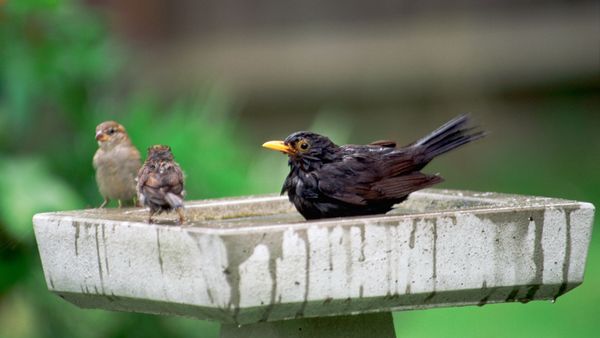
Key Takeaways
- Mockingbirds mimic the sounds of other birds, animals and even mechanical noises to protect their territory and attract mates.
- They have a vast repertoire of songs, with adult males capable of producing up to 200 distinct sounds.
- Although once thought to be open-ended learners, recent studies indicate that mockingbirds primarily learn new songs early in life and maintain these songs as they age.
What do Arkansas, Florida, Mississippi, Tennessee and Texas have in common — other than a passion for college football? They've all chosen a feathered plagiarist as their official state bird. The Northern mockingbird's scientific name, Mimus polyglottos, means "mimic of many tongues." It can imitate the noises made by cardinals, blue jays, wrens, titmice and a variety of other birds. Even more remarkable is this creature's spot-on impressions of car alarms and squeaking gates.
Mimus polyglottos is just one of the 14-plus mockingbird species out there. Many of these birds are known to replicate the sounds of other animals, which begs the question of "why?" Why do mockingbirds "mock?" What evolutionary advantage does this musical talent offer? And do they ever stop learning new songs?
Advertisement
Advertisement

